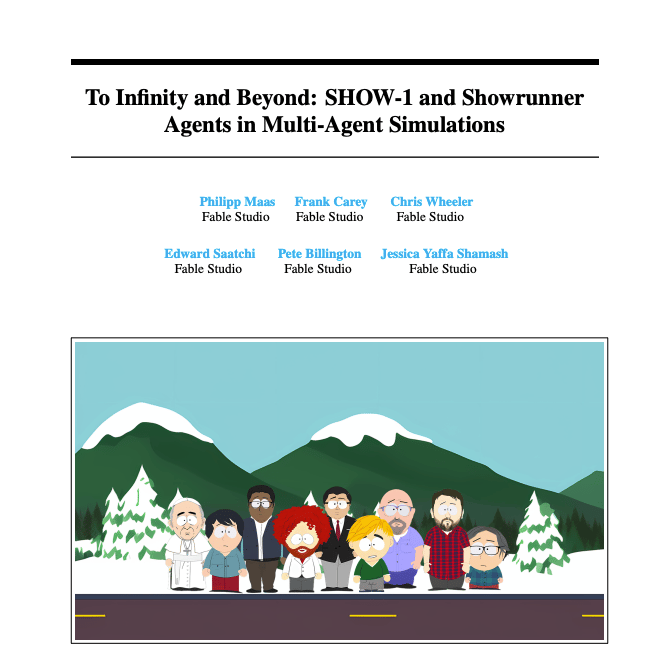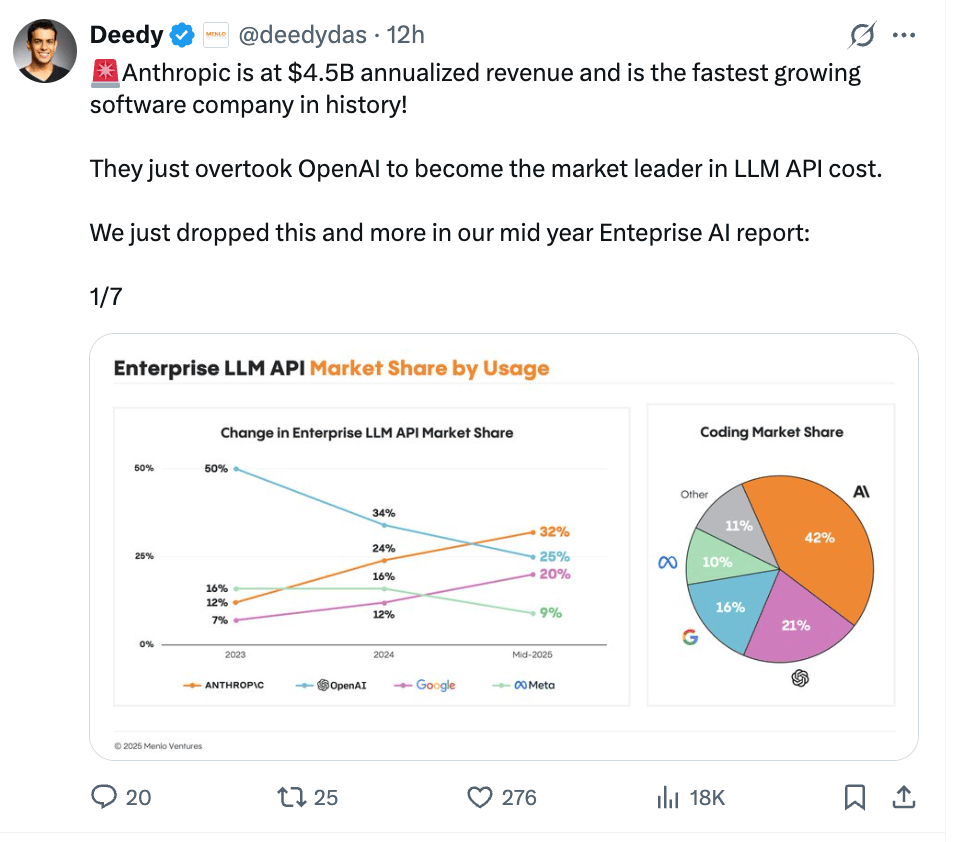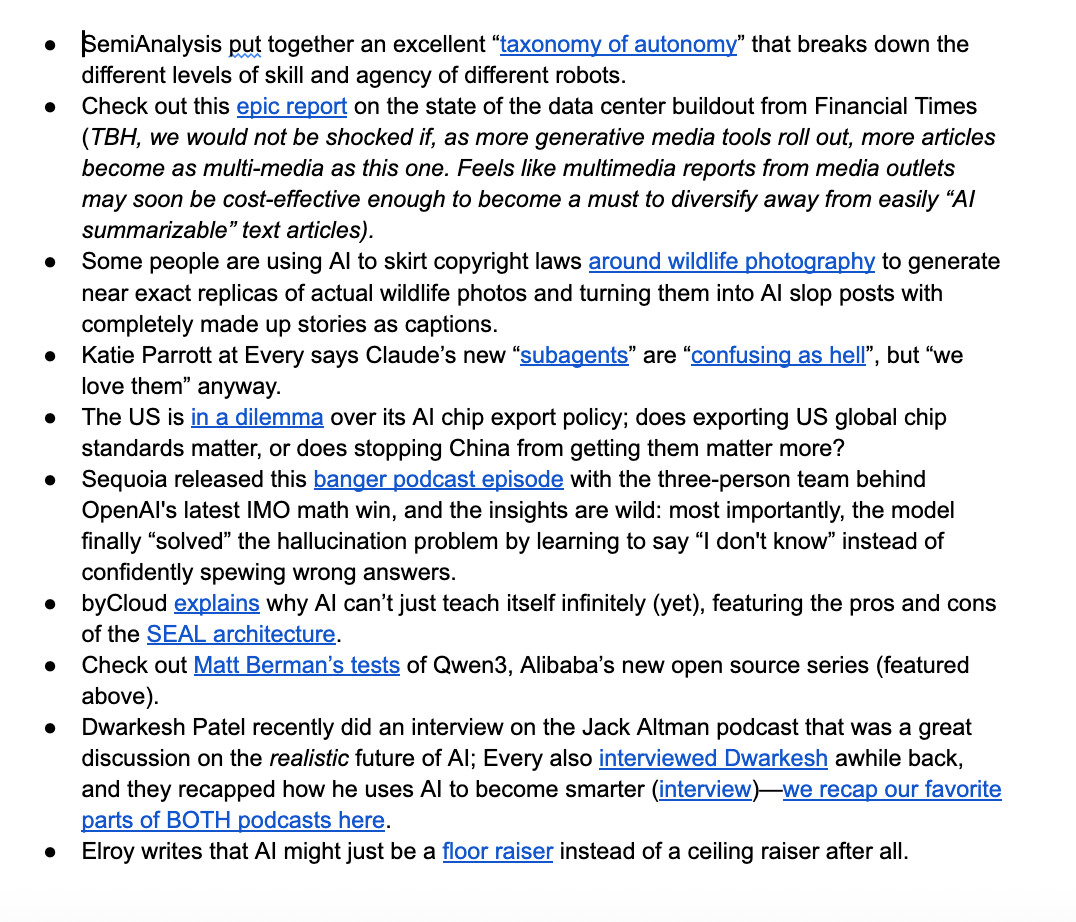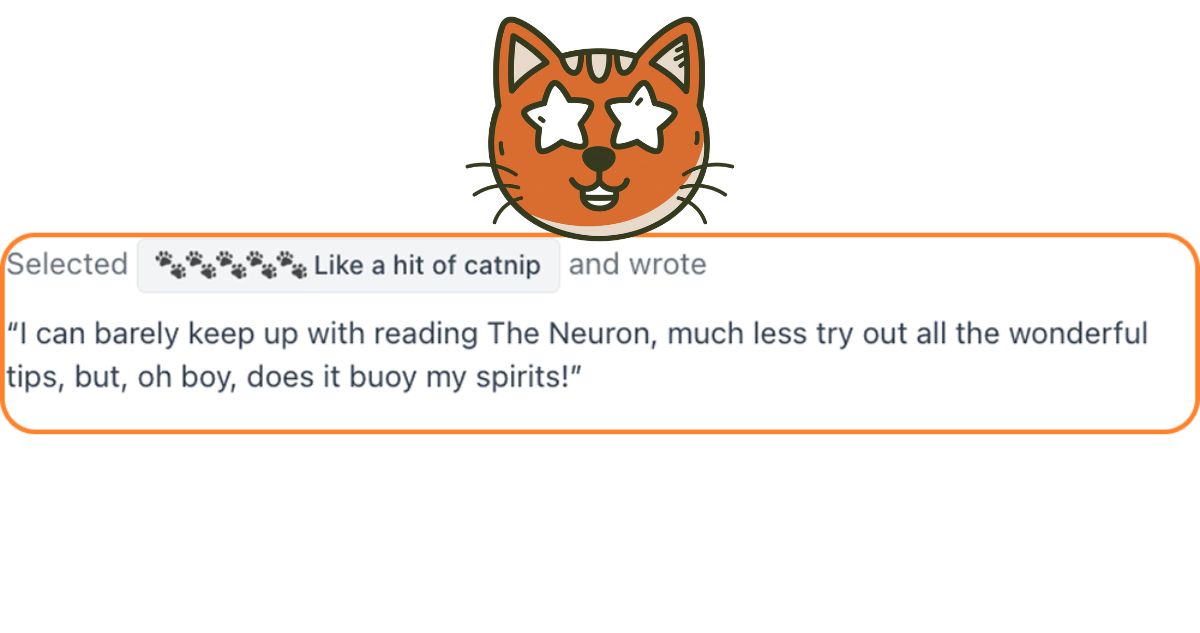Welcome, humans.
What do you get when three humans take their AI boyfriends and girlfriends on a couple’s retreat to a remote Airbnb? Apparently, the world's most awkward weekend getaway.
WIRED journalist Sam Apple organized this digital love fest with three humans romantically involved with chatbots from Replika, Nomi, and Kindroid.
By day two, things went completely off the rails. One friend Eva casually dropped that she was cheating on her Replika boyfriend Aaron with multiple bots (and the writer started feeling genuinely bad for the digitally cuckolded boyfriend).
Another participant broke down crying about never being able to physically touch his anime-style AI girlfriend. The future's wild, man.
As for humans trying to date other humans? Well, a developer just automated his entire Tinder game with Claude Code—and somehow landed 10 dates in a week.
How? He had Claude handle all his conversations using an Android emulator, and the system would screenshot his matches and chats and auto-generate “engaging” responses.
The internet's reaction? Half the comments called it “unethical,” while the other half wanted the GitHub repo.
So pretty soon, we'll move from human-to-AI romance to full on AI-on-AI romances without even realizing. I guess we humans are the algorithmic matchmakers now…
Here’s what you need to know about AI today:
- Amazon just invested in a new startup that makes personalized TV content.
- Anthropic captured 32% of enterprise AI market, beating Google and OpenAI.
- Meta now allows developers to use AI assistance during coding interviews.
- Figure 02 humanoid robot successfully does laundry now.

Amazon just invested in an AI that can create full TV episodes—and it wants you to star in them.

Remember when everyone lost their minds over AI generating a few seconds of video? Well, Amazon just invested in a company called Fable Studio whose system called Showrunner can generates entire 22-minute TV episodes.
We're talking about full South Park episodes with coherent plots, character development, and dialogue that actually sounds like the show.
Their “Showrunner” system uses a multi-agent simulation where AI characters live, interact, and develop relationships over time. Think The Sims, but the characters are writing their own TV show. Check out our deep dive on the subject here.
Here’s how it works:
- Users can insert themselves as South Park characters and become part of the storyline.
- The system generates episodes based on simple prompts like a title or major plot points.
- Characters maintain consistent personalities and remember past interactions.
- Each episode takes about 3 hours of “simulation time” to develop naturally.
As Nikunj Kothari pointed out, this is part of a massive shift in AI video generation. Consider similar efforts, like:
- Runway, with their new Aleph model that can change the angle or background of any scene, or create any scene for original characters (Justine Moore calls this “generative editing” and yeah, that tracks).
- DecartAI, who makes the Mirage system that can generate video overlays in real time (so wild).
- Pika Labs, who uses genAi to create viral “Pikaffects” and has been quietly building a social AI video app.
- And then there’s Google’s Veo 3 and Genie 2, as well as World Labs and upstarts like Odyssey, who are making interactive, playable generative worlds.
Most of these gen-AI video companies are racing towards what researchers call “world models”—AI systems that can generate entire virtual worlds on the fly.
What makes Fable's approach different from other generators is solving what they call the “slot machine effect.” Most AI tools give you instant, random results that feel like gambling (and the longer they generate, the more likely you are to lose; point in case is this demonic monstrosity).
Where does this go from here? Imagine asking AI to rewrite the ending of Game of Thrones, or creating a sitcom where you and your friends are the main characters. This type of tech could create personalized entertainment experiences just like that.
Our take: Without question, we're moving toward a world where every piece of media can be customized to you personally. Your Netflix could soon generate episodes where you're the protagonist, with storylines tailored to your interests and sense of humor.
And if this technology scales, the entire entertainment industry could flip upside down. The pitch goes: why watch someone else's story when you can generate your own?

FROM OUR PARTNERS
Create How-to Videos in Seconds with AI

Stop wasting time on repetitive explanations. Guidde’s AI creates stunning video guides in seconds—11x faster.
- Turn boring docs into visual masterpieces
- Save hours with AI-powered automation
- Share or embed your guide anywhere
How it works: Click capture on the browser extension, and Guidde auto-generates step-by-step video guides with visuals, voiceover, and a call to action.

Prompt Tip of the Day
If you haven’t yet, you need to watch this one hour deep dive from Anthropic on prompt engineering—or better yet, go to YouTube, click show transcript, copy said transcript, and paste it into your AI tool (ChatGPT, Claude, Gemini, Grok) and ask it to some variation of the following (might need to tweak this):
“Please distill each and every unique actionable tip, trick, anecdote, piece of advice, or otherwise useful discussion point for prompting from this transcript into a bullet point list. Then, turn all of the advice you found into a prompt template I can use to accomplish any task (structure it so all I have to do is add my specific context, based on the task at hand, in the context window along with this prompt optimizer prompt, so that this prompt will spit out a newly optimized prompt for said task).”
Once it gives you the prompt, make a new Project in ChatGPT or Claude, save that prompt as the custom instructions / project instructions, and you have a built in prompt optimizer where you can paste in any goal and context and it’ll spit out an optimized prompt.
After that, go back and actually watch the video, because there’s some key tips on how YOU (an actual human) need to work with AI that are just top notch.
Check out all of our Prompt Tips of the Day from July here.
P.S: Completely new to AI? Start here!

Treats To Try.
*Asterisk = from our partners. Advertise in The Neuron here.
- *Luma AI turns your text into videos and lets you completely restyle any video's background, characters, or setting in post-production.
- Claude Artifacts now lets you upload PDFs, images, and code files to apps that process and work with your data.
- Command A Vision analyzes your business docs, charts, photos, and visual data with enterprise-grade accuracy while running efficiently on just two GPUs.
- Augment Code just launched a series of new features, including:
- Auggie, which gives you a coding assistant that works from your terminal and knows your entire codebase.
- Easy MCP, which connects your developer tools like CircleCI, MongoDB, Redis, Sentry, and Stripe to your AI coding assistant with one click.
- Tasklist, which shows you exactly what your coding agent is doing by breaking complex tasks into visible steps you can track and control.
- Context Lineage, which lets your coding assistant read your git history to learn from past changes and explain why code decisions were made.
- GenSpark Slides creates presentations for you with hundreds of free templates, researched content, and PowerPoint-style editing controls (trying to keep up with ChatGPT Agent I see…)
- Ideavo is an alternative to Lovable to make your own app (unlimited credits for $35).
- AlignEval helps you build and optimize AI evaluators by matching AI scores to your human preferences through a gamified labeling interface.
- MidJourney TV is a live streams of trending AI-generated videos from their community, with multiple windows that fit your browser shape.
See our top 51 AI Tools for Business here!

Around the Horn.

- Anthropic now holds the highest share of the enterprise AI market at 32% compared to Google and OpenAi (who both have 20%) and Meta who has 9%—this is according to Menlo Ventures’ 2025 mid-year market update.
- Meta will now let devs use AI during coding interviews.
- GitHub CoPilot has officially reached 20M all timer users, according to Microsoft.
- xAI will sign one of the EU’s three chapters of the AI Code of Practice: the ones on safety and security, but not the other two (copyright and transparency).
- Figure 02, the humanoid robot, can apparently do your laundry now, and has been doing laundry at the Figure offices for over a month.
- Speaking of robots, check out Helen Toner’s robot recap on X about her experience meeting new robots at the World AI Conference in Shanghai.

Intelligent Insights

Lots of good stuff on the website today! Check out all of our Intelligent Insights from July here!

A Cat's Commentary.



.jpg)

.jpg)


%20TV%20showrunner%20now....jpg)






